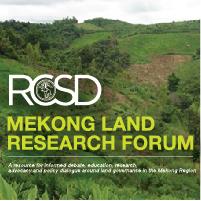Resource information
This article focuses on the role of environmental movements that have an influence on state policies regarding community forestry in Thailand. It analyses how conflicts between the state and local people over the right to manage forest resources have ceased to be seen as isolated incidents, but as part of a structural shortcoming in Thai law. In so doing the article discusses the appearance of networks of actors who question the effectiveness of state control, and lobby for the establishment of formal frameworks to establish the rights of local people in regard to access to, and control over forest resources. The article analyses how the different actors became involved, and what their influence was in the process of drafting and presenting a peoples' version of a Community Forest Bill in 2000. In doing so, the paper pays special attention to a group in Thai society that has received little attention in the international literature. This group consists of academics and public intellectuals who have played an important role in the participatory process. Results show that conflicts over access rights to forest resources at the local level would not have had such a widespread national attention if it were not for this group who supported the idea of local management.


